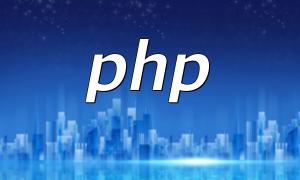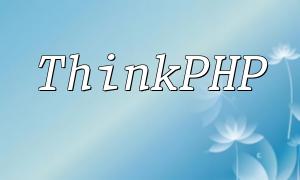With the acceleration of digital transformation in enterprises, PHP frameworks have become increasingly valuable as development tools. Facing diverse and complex business demands, enterprises require efficient and flexible development solutions, which PHP frameworks perfectly fulfill, widely applied in various enterprise-level projects.
PHP is an open-source scripting language favored for its simplicity and flexibility. PHP frameworks are sets of tools and libraries designed to improve development efficiency and code maintainability, helping developers quickly build stable web applications. Common frameworks include Laravel, Symfony, CodeIgniter, and CakePHP, all of which offer rich features and strong community support.
Enterprises adopt PHP frameworks mainly for the following reasons:
Significantly improved development efficiency: frameworks integrate many ready-made features, avoiding redundant work.
Unified code standards: frameworks follow strict coding conventions, facilitating team collaboration.
Enhanced security protection: built-in mechanisms prevent SQL injection and cross-site scripting attacks.
Active community support: large developer communities and extensive documentation ease technical support and extension.
Many enterprises choose PHP frameworks to build official websites and business applications. For example, Laravel鈥檚 elegant syntax and powerful features make complex web development more efficient. Example code snippet:
namespace App\Http\Controllers;
use Illuminate\Http\Request;
class UserController extends Controller
{
public function index()
{
// Return user list
return view('users.index');
}
}
Internal management systems are essential for handling information, resources, and employee affairs efficiently. Symfony鈥檚 modular design helps enterprises quickly build flexible and maintainable management platforms that meet diverse requirements.
The rapid growth of e-commerce drives enterprises to rely on PHP frameworks to build fully functional online sales systems. These frameworks support multiple payment methods, order, and customer management, effectively optimizing business processes. For example, CodeIgniter enables quick integration of various payment channels and promotional activities.
Main benefits of using PHP frameworks include:
Shortened development cycles: rich built-in libraries and functional components greatly improve efficiency.
Improved code maintainability: structured design facilitates maintenance and expansion.
Flexibility to adapt business needs: high configurability supports diverse projects.
Despite clear advantages, PHP frameworks face certain challenges:
Learning curve: beginners need time to master framework features and usage standards.
Performance bottlenecks: some frameworks may have limitations under high concurrency.
Dependency updates: framework upgrades can affect existing system compatibility and require careful management.
In summary, PHP frameworks demonstrate excellent value in enterprise applications by providing developers with powerful tool support for efficient, standardized, and secure system development. By effectively leveraging these frameworks, enterprises can boost development efficiency and enhance system flexibility and stability, better meeting market demands and technical challenges. Whether for website construction, enterprise management, or e-commerce development, PHP frameworks show broad applicability and vitality.










